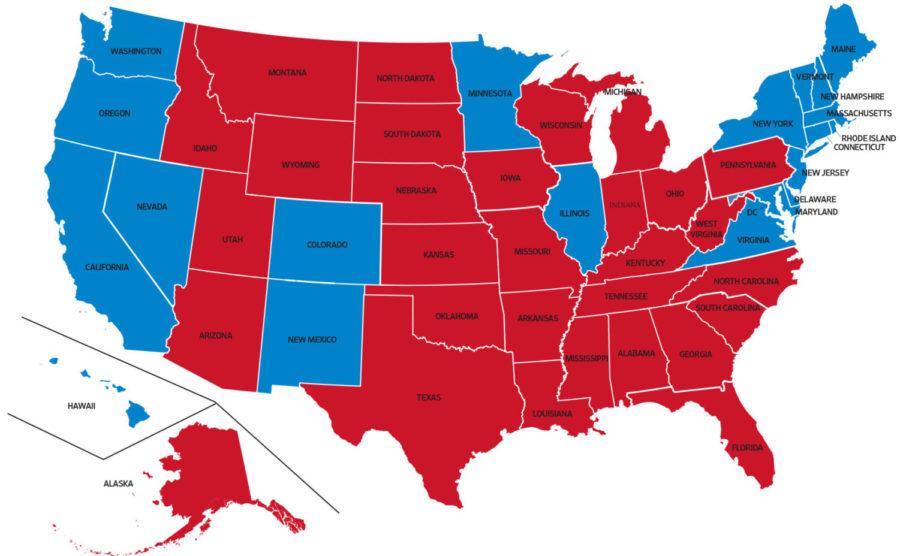Letter: Don’t abolish the Electoral College
March 26, 2019
Over the past few years politicians, activists, and members of the general public have rallied around the idea to abolish the Electoral College system. This is coming on the heels of multiple elections where winners of the popular vote ended up losing the actual election.
Though this appears to be rigged, it is actually by ingenious design and we should keep it as the cornerstone of our elections. Looking at the United States Constitution, many are shocked to not find the word ‘democracy’ anywhere. This is because the U.S. is actually a republic. If you do not believe me, head on over to the National Archives and take a look for yourself.
As students of history, Alexander Hamilton, James Madison and John Jay feared for tyrannical mob rule and structured the government with that in mind. They decided to entrust public decision-making to representatives chosen by the people. They have better access to information, know the constituencies they serve and are accountable to the people at the polls.
Enter Article II, Section 1, Clause 2.
This clause sets out the plan for the Electoral College. States are allowed to appoint electors, “equal to the whole Number of Senators and Representatives to which the State may be entitled in the Congress.” This way each state isn’t proportionally represented by population or equally represented by virtue of being a state, but rather a powerful combination of the two.
Critics of the Electoral College like US Senator Elizabeth Warren (D-MA) say it violates principles of democracy and degrades individual vote integrity. This may be true, but remember, the United States is a republic, not a democracy. The current system actually gives equitable importance to each vote.
In 2018, the populations of California, Texas, Florida, New York and Pennsylvania made up over a third of the entire U.S. population. In a national popular vote, these five states would be the kingpins of executive politics. Presidential candidates would only have to visit and win these and then the next five most populous states to secure victory. This, quite literally, leaves forty other states out of the equation. Iowa included.
With a national popular vote, candidates only have to appeal to a narrow swath of majority interests to gain access to the White House. The Electoral College ensures economic, ideological and racial minorities still have a voice at the table because focusing on smaller groups amplifies their influence rather than diluting it on the stage of national politics.
The Electoral College also compels presidential candidates to incorporate geographic diversity into their campaigns and visit areas commonly referred to as ‘flyover country.’ Though population numbers in these regions are much lower, their economic contributions to the country are huge. Iowa ranks second for largest agricultural cash receipts but thirty-first in terms of population. Iowans should have candidates visiting and clamoring for their votes because of their massive role in the economy.
Swing states like Iowa, Wisconsin, and my home state of Colorado are regularly ridiculed for having over-inflated importance during presidential elections. I would argue this elevates them to an even playing field rather than dragging the rest of the system down to their level.
Understandably Democrats are upset their candidates have twice lost the election after winning the popular vote. However, I would caution them against abolishing a system just for that reason. If they pull the lever for partisan purposes, they must remember their opposition will adjust to the new rules of the game and may eventually beat them at it.







